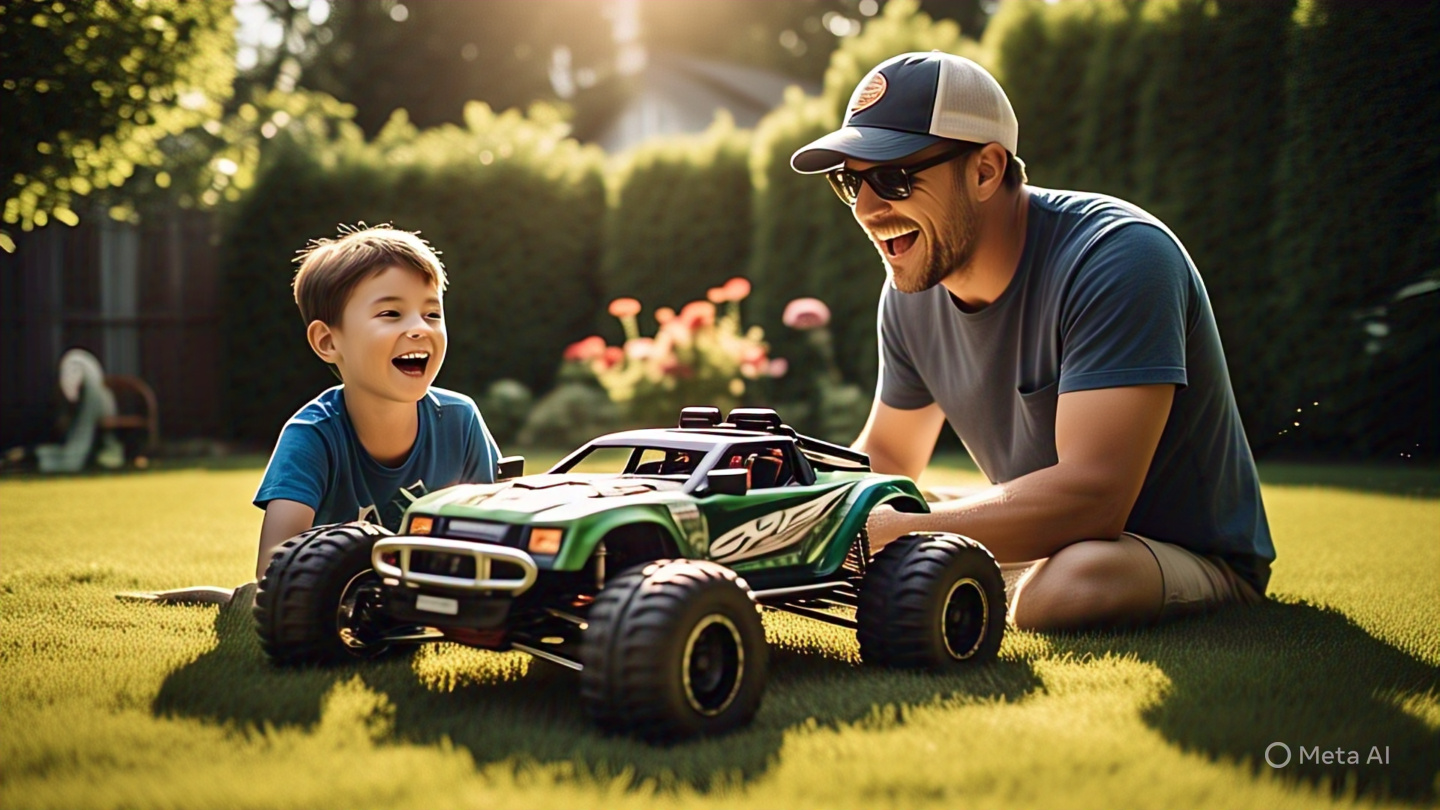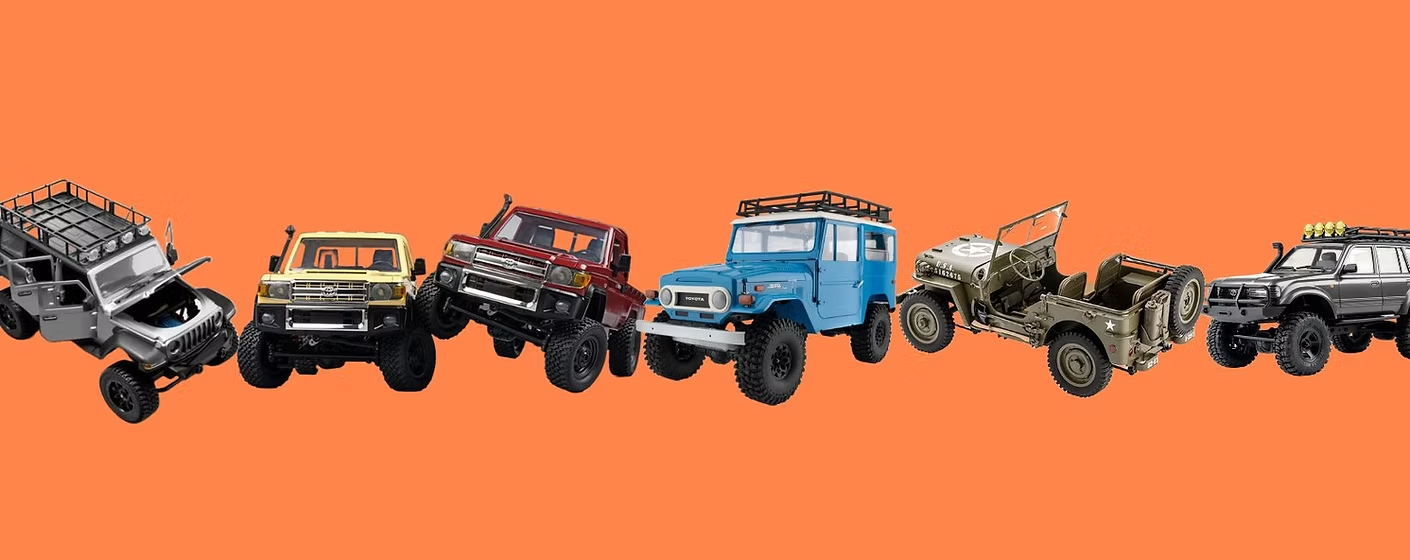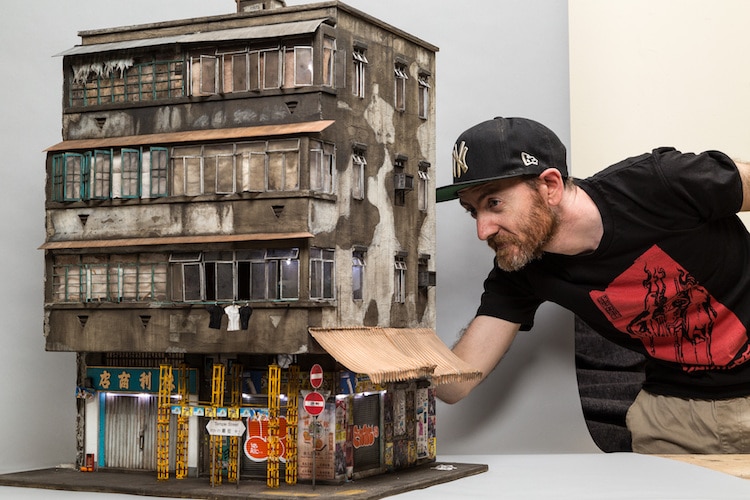Introduction to RC Cars
Remote control (RC) cars are miniature vehicles that can be operated from a distance using a handheld transmitter or radio control. Originally developed in the early 20th century, RC cars have undergone significant advancements in technology, design, and function, making them increasingly popular among hobbyists of all ages, particularly the youth. The evolution of RC cars can be traced from their mechanical origins, which involved basic radio systems, to modern models that incorporate sophisticated electronic components, including brushless motors, rechargeable batteries, and digital circuitry. These developments have not only improved performance but also expanded the variety of models available, catering to diverse interests and skill levels.
The basic concept of RC cars remains the same; however, their applications and features have grown markedly sophisticated. Today’s models range from simple toys to complex vehicles designed for competitive racing and extensive customization. While traditional RC cars often featured limited functionality, current models may include advanced features such as programmable controls, high-speed capabilities, and intricate designs that replicate real-life vehicles with striking accuracy. Furthermore, the introduction of off-road variants enables enthusiasts to explore various terrains, adding another dimension to the user experience and engagement.
RC cars have become a significant aspect of youth culture, offering more than just entertainment. They serve as a gateway for young people to learn about engineering, electronics, and mechanics. In addition to honing technical skills, operating an RC car encourages critical thinking, problem-solving, and teamwork, especially in group settings or competitive environments. As we delve into the importance of RC cars for personal development and social engagement, it is essential to recognize their role in shaping hobbies and futures for today’s youth.
The Allure of RC Cars for Kids
Remote-controlled (RC) cars have captivated the imaginations of children and young adults for decades, offering a unique blend of excitement and engagement. One of the primary draws of these miniature vehicles is the thrill associated with racing. Kids are often attracted to the adrenaline rush of seeing their RC cars speed across various terrains, whether on a racetrack or in the backyard. This excitement not only provides a fun pastime but also introduces the fundamentals of racing in a controlled and safe environment.
Adding to the allure, the challenge of building and customizing RC cars appeals to a wide audience. Many young enthusiasts enjoy hands-on experiences that allow them to piece together components, tweak designs, and create a vehicle that mirrors their personal style. This interactive engagement fosters critical thinking and problem-solving skills, as young builders must understand mechanics and electronics to optimize performance. The customization aspect further instills a sense of ownership and pride, encouraging them to showcase their creations at local competitions or within their communities.
Moreover, participating in RC car communities encourages social interaction among peers. These groups often organize races, gatherings, and workshops, which provide a platform for kids to share their interests and skills. By engaging in these events, young hobbyists can mingle with others, exchange ideas, and learn from more experienced participants. The collaborative atmosphere within these communities promotes healthy competition and the development of social skills, making the experience not just about racing but also about building relationships.
In summary, RC cars captivate youth through the excitement of racing, the intricacies of building and personalizing vehicles, and the vibrant social interactions fostered within the RC car community. These elements combine to create a hobby that is both enjoyable and beneficial for personal development.
Encouragement of Technical Skills
Remote-controlled (RC) cars serve as more than just toys; they provide an excellent platform for youth to cultivate essential technical skills. Engaging with RC car models offers youngsters the opportunity to develop an understanding of mechanics, electronics, and even programming principles, which can lay the groundwork for future careers in engineering and technology. Children can gain hands-on experience as they learn to assemble and disassemble various components of their RC cars. This process enhances their comprehension of mechanical structures and encourages them to explore the intricacies of how different parts work together.
In addition to mechanics, the interaction with electronics involved in RC cars is significant. Many models are equipped with batteries, motors, and remote controllers, allowing young enthusiasts to grasp basic electrical concepts, such as circuits and power sources. When they experiment with performance enhancements or modifications, they discover how different electronic components impact the car’s speed and maneuverability. This grasp of electronics is not just limited to the theoretical; it is practically applicable, fostering problem-solving skills as they troubleshoot issues with their models.
Moreover, the emerging field of programming also finds its way into the world of RC cars. Many advanced models come with programmable features, enabling users to customize their performance and behavior. By learning to code for their RC vehicles, youths gain foundational knowledge that is invaluable in today’s technology-centered job market. Familiarity with coding languages and software can inspire interest in further technical studies and could lead them to pursue higher educational opportunities in STEM fields.
Overall, engaging with RC cars equips youth with an array of technical skills that are applicable in various aspects of life and work, helping to form a solid foundation for their futures.
Fostering Creativity and Problem-Solving
Remote-controlled (RC) cars serve as a captivating medium through which young individuals can engage in creative expression and hone their problem-solving skills. The excitement of operating these vehicles goes beyond basic play; it encompasses a multifaceted approach to learning and innovation. One of the primary avenues for fostering creativity is through vehicle customization. Children can modify their RC cars, exploring different colors, designs, and functionality. This creative process not only allows them to express their individual tastes but also encourages them to think critically about design choices and how those impact performance.
Moreover, RC cars often present challenges that require young enthusiasts to engage in problem-solving activities. For instance, issues such as mechanical failures or performance deficits may arise during play. Enthusiasts must diagnose problems, from identifying a malfunctioning part to troubleshooting connectivity issues. In this manner, the difficulties encountered can serve as teachable moments. Children learn how to approach problems methodically, perform analysis, and implement effective solutions, developing skills that are transferrable to real-world scenarios.
During races and competitions, participants face additional challenges, such as strategizing for different terrains, adjusting to competitor dynamics, and improving their driving techniques in real time. Each race becomes an opportunity to innovate tactics and adapt quickly. The fast-paced environment fosters resilience and ingenuity, pushing youth to think on their feet. As a result, even setbacks can transform into learning experiences, equipping young drivers with a toolkit of adaptive skills and creative solutions.
In summary, the engagement with RC cars creates a unique platform that encourages both creativity and problem-solving. Through customization, troubleshooting, and competitive racing, children are not only entertained but also cultivated into innovative thinkers who can tackle various challenges in their lives.
Building Patience and Discipline
Remote-controlled (RC) cars serve as an engaging avenue for young people to cultivate essential life skills, notably patience and discipline. The intricacies involved in maintaining and racing these miniature vehicles require skillful navigation through various trials and tribulations. This journey helps foster a mindset oriented toward practice and perseverance, enabling youth to face challenges head-on.
When hobbyists dedicate time to constructing and fine-tuning their RC cars, they encounter setbacks such as mechanical failures or design flaws. These experiences provide young participants with an opportunity to learn vital lessons about problem-solving and the importance of perseverance. Instead of viewing failures as insurmountable obstacles, children develop a constructive attitude that encourages them to analyze what went wrong and to develop strategies for overcoming similar issues in the future. This process lays the groundwork for a resilient character that can adapt to life’s vicissitudes.
Moreover, the competitive nature of RC car racing reinforces the significance of discipline. Practice sessions are essential, as success in racing requires not only understanding the mechanism of the car but also mastering driving techniques and optimizing performance through consistent efforts. Young enthusiasts must learn to allocate time efficiently to improve their skills, thereby instilling a sense of accountability and responsibility in their actions.
The importance of patience cannot be overstated in this context. Improvement in racing skills does not occur overnight; it necessitates a commitment to dedicated practice over time. As children invest hours in refining their techniques, they inherently grasp the value of steady progress and the fulfillment that comes from achieving long-term goals through sustained effort. Such experiences foster emotional growth, equipping them with virtues that are beneficial throughout their lives.
Social Interaction and Community Building
Engaging in RC car hobbies offers youth a unique opportunity to foster social interaction and build a sense of community. As children and teenagers explore the exciting world of remote-controlled vehicles, they naturally connect with peers who share their interests. This common ground forms the basis for friendships that can last for years, transcending the boundaries of age, background, and personal differences. By participating in RC car-related events and gatherings, young enthusiasts can enhance their social networks and engage in meaningful interactions.
Participation in team events and competitions is particularly important for social development. Many RC car clubs and organizations host regular races, workshops, and exhibitions that encourage teamwork and collaboration. In these settings, participants often work together to improve their skills, share technical knowledge, and strategize for races. Such collaborative efforts not only boost the likelihood of success in competitive scenarios but also promote essential communication skills that are crucial for navigating social relationships in other areas of life.
Moreover, the collaborative environment found in RC car hobbies encourages inclusivity and diversity. Young participants learn to appreciate different perspectives and approaches, as they engage with peers from varied backgrounds. This exposure to diverse ideas promotes empathy and understanding, essential traits for building strong social foundations. Those who participate in RC car communities often find themselves developing a strong sense of belonging, further reinforcing their social skills.
Ultimately, the social benefits of engaging in RC car hobbies extend far beyond the race track. The friendships formed, the teamwork developed, and the communication skills honed through these activities play a significant role in shaping the character and future success of the youth involved. Through these interactions, young individuals not only cultivate their passion for RC cars but also create lasting memories and valuable social connections.
Shifting Focus Away from Negative Influences
In today’s fast-paced digital environment, young people are often exposed to an array of distractions that can lead them toward negative influences. Excessive screen time, unhealthy habits, and risky behaviors can adversely affect their development and mental health. Engaging in hobbies such as remote-controlled (RC) cars can provide a constructive diversion, steering children away from these detrimental paths. When youth are encouraged to invest their time in hobbies that stimulate creativity and enhance skill sets, they are less likely to succumb to the potential pitfalls presented by modern technology.
Remote-controlled cars not only captivate the imagination but also require focus and responsibility from their operators. By assembling and customizing RC cars, children develop patience, critical thinking, and problem-solving skills. These benefits can outweigh the temporary amusement derived from prolonged screen time, as young enthusiasts find themselves immersed in a hobby that demands active participation and real-world interaction. Furthermore, teamwork often plays a crucial role in this pastime, especially when kids organize races or collaborate on modifications, fostering social connections and building friendships along the way.
Parental concerns regarding negative influences in their children’s lives can thus be alleviated by promoting hobbies such as RC cars. Parents can encourage active involvement in exciting and positive activities that not only divert attention from screens but also instill lessons in perseverance, creativity, and social skills. Instead of being consumed by virtual distractions, children benefit from the tangible experiences that constructive hobbies like RC car racing provide.
Ultimately, engaging with RC cars helps cultivate a healthy lifestyle filled with productive outlets. By shifting focus away from negative influences, children can while fostering a passion, create lasting memories, and develop valuable life skills that will serve them well into the future.
Cultivating Future Career Interests
Engaging with RC cars can serve as a valuable entry point into various technical fields for young enthusiasts. The intricate components of remote-controlled vehicles involve mechanical engineering principles that not only captivate the imagination but also lay the groundwork for a deeper understanding of physics and mechanics. As children and teenagers assemble, modify, or troubleshoot their RC cars, they hone their problem-solving skills and creativity, qualities that are indispensable in professional environments. This hands-on experience in mechanics is especially relevant for those considering a career in mechanical engineering.
Moreover, the integration of electronics in RC vehicles provides an excellent platform for developing skills in electronics and programming. Many modern RC cars utilize microcontrollers and sensors, encouraging young hobbyists to explore programming languages and circuit design. This exposure not only enhances their technical knowledge but also nurtures interests in fields such as electronics engineering and robotics. By experimenting with different programming techniques and understanding electronic components, aspiring engineers can cultivate a foundation that is pivotal for future career development.
In addition to engineering and electronics, the design aspect of RC cars attracts those interested in aesthetic and functional design. Building a custom RC car offers an opportunity to learn about design principles, materials, and user experience. This experience can foster a passion for industrial design or product development, where visual appeal meets engineering functionality. Additionally, the camaraderie within the RC car community allows young people to network and collaborate, further stimulating their aspirations.
Ultimately, the skills acquired and the interests nurtured through the hobby of RC cars can lead to educational pursuits and career paths that revolve around engineering, robotics, and design. By instilling a passion for these subjects, young individuals can be inspired to navigate their futures with confidence and creativity, turning their early interests into significant career opportunities.
Conclusion: The Lasting Benefits of Engaging with RC Cars
Engaging with remote-controlled (RC) cars has proven to have significant positive effects on youth, encouraging the development of essential life skills and fostering a rewarding hobby. Throughout this article, we have explored the various attributes that make this pastime not only enjoyable but also beneficial for children and teenagers. Learning to assemble and operate RC cars enhances critical thinking and problem-solving abilities, as young enthusiasts navigate challenges ranging from technical issues to strategic racing. These experiences impart valuable lessons in persistence, patience, and creativity.
Moreover, the social dimension of RC car hobbies cannot be understated. Participating in local clubs or online communities allows youth to build meaningful connections with peers who share similar interests. This strengthens social skills, promotes teamwork, and encourages communication, all of which are indispensable for personal and professional success in the future. Additionally, the opportunity to engage in outdoor activities leads to improved physical health and well-being, creating a well-rounded experience that goes far beyond mere entertainment.
Furthermore, as young people develop their skills in handling RC cars, they may discover interests in related subjects such as engineering, mechanics, and technology. This can lay the groundwork for future educational pursuits and career paths. By nurturing these interests early on, parents and mentors can help guide youth towards exploring potential professional opportunities in STEM fields.
In conclusion, the multifaceted benefits of engaging with RC cars are undeniable. Encouraging youth to participate in this enriching hobby can help shape their character and life trajectory positively. It is essential for parents, educators, and community members to support and promote this engaging activity, ensuring that the next generation has the tools and experiences necessary to thrive in their future endeavors. Embracing hobbies such as RC cars is not merely about play; it is an investment in the development of a brighter future for our youth.





